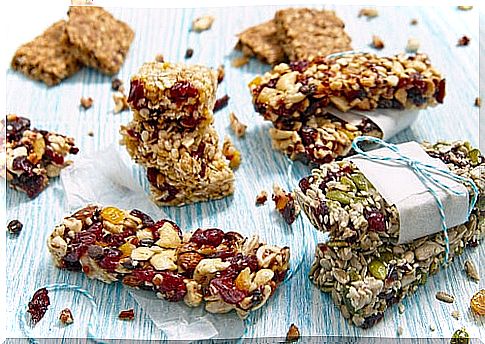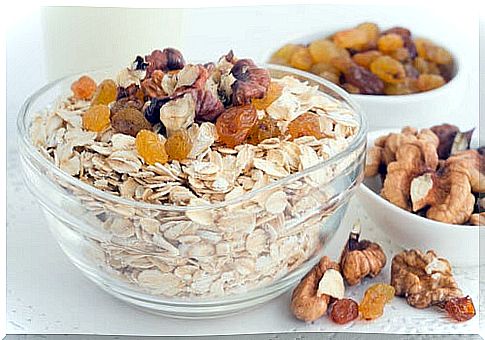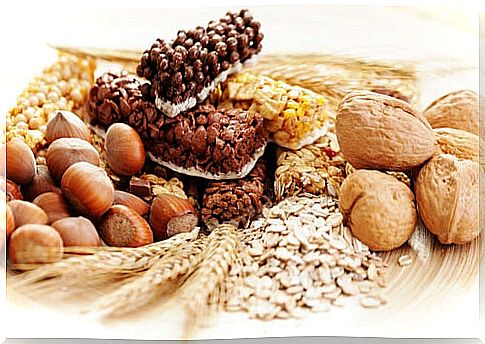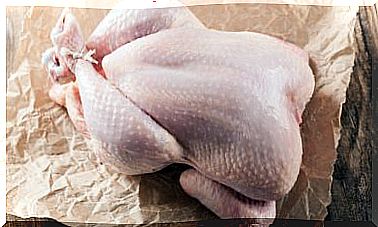When Should I Not Eat Foods Rich In Fiber?
An excessive consumption of fiber can have the opposite effect to the desired one and, instead of regulating our intestinal transit, block it, so we must consume it with measure

Some foods that we believe are beneficial to health end up being harmful. One of those “overrated” nutrients is fiber, since for some people it can cause different problems.
In this article we tell you when it is not advisable to consume foods rich in fiber.
Is fiber the villain of the story?

One of the compounds digested by the gastrointestinal tract and fermented by colonic bacteria is dietary fiber. This favors the functioning of the intestine and reduces the absorption of certain substances, including lipids (including cholesterol).
The advantages of fibers are too many to waste, but an incorrect intake of this nutrient can show us its “negative side”. Therefore, it is essential to moderate the amount we consume.
Some inconvenients
Fiber, for example, does not allow glucose to pass quickly into the bloodstream. By absorbing lipids, your ability to take in calcium, zinc, iron, or copper from food decreases.
On the other hand, in people who follow vegetarian diets, fiber reduces the availability of minerals in the body (especially calcium and iron). It also increases the possibility of suffering from osteoporosis or anemia.
In addition, excessive intake of this nutrient contributes to lower digestibility. This results in weight loss, delayed gastric emptying, and increased satiety.
But also more flatulence and bloating. Therefore, it is not recommended in people suffering from gastritis or stomach disorders.
Consuming more than 30 grams of fiber per day inhibits the activity of enzymes in the pancreas. This can disrupt the digestion of carbohydrates, fats, and proteins and cause various digestive and intestinal problems.
Does fiber make you fat or thin?

If you are one of those people who spends it dieting (and changing from one regimen to another) you may wonder what the effect of fibers is on our body. And, more particularly, if they have the ability to make us gain or lose weight.
- On the one hand, it is necessary to know that it is a component that is difficult to absorb. This is the reason why many diets recommend it to feed us without gaining weight.
However, for every gram of fiber we increase 2 Kcal. What we must highlight is a satiating effect greater than other nutrients.
- When we eat foods that have fiber, we may not want to try other foods for a few hours. Going for a long time without eating can be good or bad for your health.
Although you will not be adding foods that can provide calories, the body will compensate for this lack of food by metabolizing fats (something that is not beneficial).
Although it is not a 100% effective cleanser for the colon, the fiber carries away lipids and allows better evacuation. This is very healthy.
Now: if you have eaten a hamburger with fries and then consume cereals or brown rice, do not expect miracles. All the fat from junk food will not go down the toilet even if it has laxative properties.
What happens if I eat a lot of fiber?

As we believe that eating fiber will help us to go to the bathroom and lose weight, we consume it too much. And that can have many serious consequences for the body.
The excess of this component does not allow the body to absorb vitamins and minerals from food (or, at least, not in their entirety). They immediately pass through the intestine and are eliminated.
In turn, it can cause diarrhea and even constipation. And is that consuming a lot of fiber in a few hours does the opposite effect to what we expect : it prevents bowel movements.
- If your belly looks very bloated throughout the day and you feel satisfied even though you have hardly eaten, then you may be eating too much fiber.
- The same if you feel intense abdominal cramps (between the groin and the chest).
- In the event that you follow a treatment with drugs such as diabetes medications, fiber can reduce the effects of them.
So who should avoid excessive fiber consumption?
As we have already indicated, ingesting fiber in high doses can cause health problems. To reduce these effects, it is necessary to drink a lot of water with meals and during the day, so that it softens and can pass easily through the intestines.
In turn, it is essential to analyze the effects on the body (bloating of the stomach, gas, diarrhea, etc.). In this way we will not eat too much of it.
People who should reduce their fiber intake are:
1. Celiac
Those with a gluten intolerance or allergy can present significant problems if they eat fiber. Especially in oatmeal (unless it indicates that it is suitable).
In your case, chia or flaxseed seeds are recommended as a supplement. You can also consume the oil from these seeds.
2. With intestinal diseases
Oat bran, for example, is discouraged for people suffering from some intestinal disorders. For example, ulcerative colitis or Crohn’s disease.
And is that when a diet is high in fiber triggers major gastrointestinal disorders. In the case of suffering diverticulitis, the intake of this nutrient should also be reduced.
3. With diarrhea
Severe gastroenteritis or gastroenterocolitis are incompatible with fiber consumption. Its intake should be suspended until the stools are normal.
Rather, a diet based on white rice and chicken is recommended. In addition to drinking plenty of water to replace fluids.
4. Anemic

If you suffer from anemia, you must bear in mind that not all healthy foods are suitable for you. in fact, how we combine them is also important.
Phytates in bran and oats prevent efficient absorption of iron. This makes the symptoms of anemia worse.
5. With osteoporosis
Finally, as with iron, the fibers do not allow optimal absorption of calcium. This can lead to bone problems (bone fragility, tooth loss, etc.).
Now you know that fiber is not always beneficial for your health. However, we must seek balance in the diet and not choose only refined foods.









